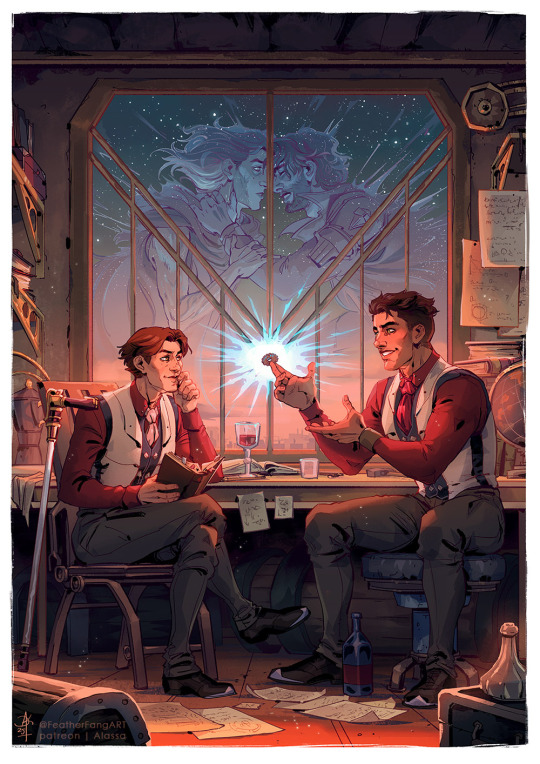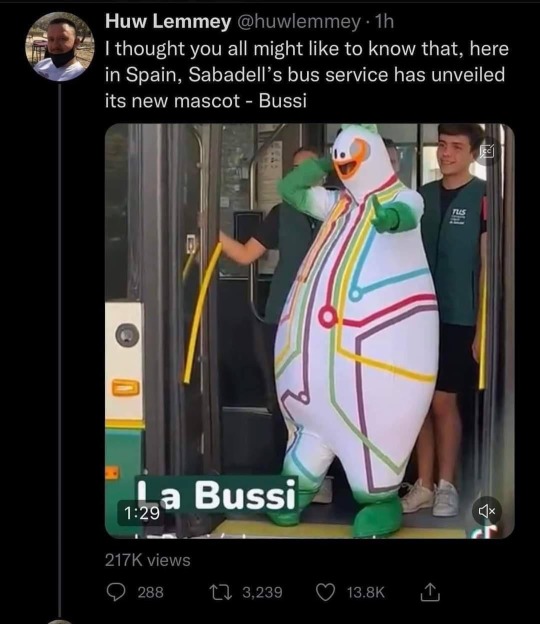#language nerding
Explore tagged Tumblr posts
Text
Spotted a 是。。。的 construction in the wild:

- 你到底是怎么认出我的? - How did you recognise me?
New words / 生词 ========
认出 rènchū recognition / to recognize
到底 dàodǐ finally / in the end / when all is said and done / after all / to the end / to the last
#the untamed#watching the untamed#the untamed episode 40#cql#learning mandarin#language nerding#mandarin#是。。。的#生词#learning mandarin with the untamed
97 notes
·
View notes
Text
Check out wikipedia:
And the gung-ho article also has some good quotations.
gōngyè hézuòshè = ��业合作社
gōnghé = 工合
When people get a little too gung-ho about-
wait. cancel post. gung-ho cannot be English. where did that phrase come from? China?
ok, yes. gōnghé, which is…an abbreviation for “industrial cooperative”? Like it was just a term for a worker-run organization? A specific U.S. marine stationed in China interpreted it as a motivational slogan about teamwork, and as a commander he got his whole battalion using it, and other U.S. marines found those guys so exhausting that it migrated into English slang with the meaning “overly enthusiastic”.
That’s…wild. What was I talking about?
#etymology#language nerding#workers' cooperatives#i thought it was from some Indian language during the British colonial period#mandarin#english language#chinese language#loanwords
71K notes
·
View notes
Text

Two Sides Of the Same Coin
#jayvik#viktor arcane#jayce talis#arcane#arcane art#i'm sorry for not drawing the location and some things accurately#it was all for the sake of composition#and my own sake bc i love longe haired Viktor design sm#had a lot of fun with this one#it was insanely difficult#but had fun#their love language is nerding out so here they are nerding out#las!art
8K notes
·
View notes
Text


#bussi#Spain#public transport#meme#memes#lol#funny#funny meme#funny memes#cute#mascot#mascots#bus#bus meme#bus memes#transport#iT’s nOt fUnNy in oThEr LanGuagEs#shut up nerd#it’s funny to me#erhmergird anglophones on tumblr!!11!!!
32K notes
·
View notes
Text
Swedish word of the day:
kramsnö
literally "hugging snow", snow that is adhesive enough that you can form snowballs, snowmen etc from it
krama = hug, but also squeeze or press together
#swedish#swedish language#svenska#language nerding#linguistics#winter#snow#words for snow#it's what i found outside my house this morning
132 notes
·
View notes
Text
Ugh yeah been there! And that's one of the things that makes then learning linguistics about your language so satisfying.
You get to tell your friends "it's because of the verb 2 rule" or "it's because the thematic role of the place word is "goal" and not "location" in this sentence.
You get to help them with their writing AND you get to lecture them on linguistics at the same time!
In the magic story maybe it can go like "you, the brilliant instinctive learner, meets the scholar with words for your itches. And then there's LOVE!"
All throughout childhood, while my peers were socializing and making friends, I studied the blade read so many books that I am now almost legally blind, which left me with vast and deeply instinctual understanding of English grammar - and next to no ability to explain how it actually works. Friends will often ask me to proofread their writing and then get very mad when I say things like, "You need to completely reverse this sentence and cut this clause entirely; no, I'm sorry, i don't know why, I just know that the way it is now ITCHES 😭"
Now, what I want to see is a fantasy story where this plays out with MAGICAL grammar. Someone from a backwater town deeply steeped in folk magic arrives at Wizard Uni where all their fellow students are like "What do you mean, we should add another '𝞯∘⋇𝞿' to the incancation because it 'sounds better'? What do you mean, 'it could just be a regional thing'?? WHAT DO YOU MEAN, 'THIS SPELL JUST FEELS LIKE IT NEEDS A LIVE RAT'????"
51K notes
·
View notes
Text



she out on my wild till i go supernova
#going through perfectionist art rehab rn#so no homest*ck no caring if im coloring slightly outside the lines and no deep meanings#just fun#outer wilds#outer wilds feldspar#outer wilds hal#i got attached to hal bc theyre a language nerd and also mcs best friend which always gets me#outer wilds hatchling#outer wilds hornfels#outer wilds slate#outer wilds gabbro#outer wilds chert#outer wilds riebeck#lovisas art#also if you havent played outer wilds you should do that Now
2K notes
·
View notes
Text
old polish* names are metal as fuck, cause they can literally mean something like "the destroyer of peace" (Kazimierz), "the rage has come"(Przybygniew), "the one that praises killing/murdering" (Morzysław), "the one that does not know peace" (Nieznamir), or, my personal favorite, "the one that avenges his comrades" (Mściwoj).
it gets even more badass - because the pre-christian slavic traditions and language were rather poorly documented, and throughout history, there have been attempts to erase the records, we can't actually know for sure what exactly some of them were supposed to mean, or how were they used. we're left with names that could belong to a demonic antagonist in a fantasy book, their sound harsh, their origin shrouded in mystery.
*many of those are names in other slavic languages, too, but i'm talking specifically old polish names because i am polish and that's the language i know the most about.
#language#languages#names#old names#language nerd#polish#polish language#poland#slavic#slavic culture#slavic names#slavic languages#old slavic#discussion#cool#fun fact#name
631 notes
·
View notes
Text
*taps mic* felix is good at improv because he's skilled in coming up with lies on the spot and adrien is good at faking accents because he's skilled in mimicry and conforming to a set of rules/expectations
#NOT TO SAY FELIX CAN'T MIMIC OF COURSE just that adrien has the languages/accents advantage.#also i just think polyglot/language nerd adrien is a good headcanon. i'm surprised it's not more common#adrien agreste#mlb adrien#miraculous adrien#senticousins#felix fathom#mlb felix#miraculous felix#felix graham de vanily#sentitwins#miraculous lb#miraculous fandom#miraculous ladybug
575 notes
·
View notes
Text
Now that I've finished the Integrated Chinese textbook, level 1, part 2, I want to start on the practice exam.
Just posting this binding myself to not doing more than four questions today, instead of like last time when I ended up working on it for 12 hours straight.
21 notes
·
View notes
Text
neil josten has the skills to be a hit man capable of taking down mafia empires in an alternate universe but instead he chose to play collegiate exy because ball is life and he would rather be gay and only do crime on the side (ordering hits on rapists) and if that's not character of all time behaviour i don't know what is
#he also speaks at least three languages and he's a maths nerd and his favourite color is gray and he's demi and oblivious and#i'm halfway through reading the golden raven but i'm still thinking about neil josten ok#i can't help it#neil josten#all for the game#aftg
332 notes
·
View notes
Text
Also I personally love "a hare's breath". So poetic!
For more "spontaneous reshapings of known expressions" I can recommend the Eggcorn Database, where just such things are collected and chategorised linguistically:
A few favourites from the database:
Via Dolorosa » Via de la Rosa
give up the ghost » give up the goat
scapegoat » escape goat
prima donna » pre-madonna
new lease of life » new leash on life
sow one's wild oats » sow one's wild oaks
get one's knickers in a twist » get one's nipples in a twist
like a bull in a china shop » like a bowl in a china shop
dead metaphors are really interesting honestly and specifically i’m interested in when they become malapropisms
like, the concept being, people are familiar with the phrase and what people use it to mean metaphorically, but it’s not common knowledge anymore what the metaphor was in literal reference to. people still say “toe the line” but don’t necessarily conjure up the image of people standing at the starting line of a race, forbidden from crossing over it. people still say “the cat is out of the bag” without necessarily knowing it’s a sailors’ expression referring to a whip being brought out for punishment. some metaphors are so dead we don’t even know where they come from; like, there are ideas about what “by hook or by crook” references, but no one is entirely sure. nobody knows what the whole nine yards are.
and then you throw in a malaprop or a mondegreen or two, where because people don’t know what the actual words of the expression refer to, they’re liable to replace them with similar sounding words (see “lack toast and tolerant”). so we can literally go from a phrase referencing a common, everyday part of life to a set of unfixed, contextless sounds with a completely different meaning. that’s fascinating. what an interesting piece of the way language and culture are living, changing, coevolving things.
maybe part of the reason we can’t figure out where some phrases come from is that over time the words themselves have changed! one of the theories about “the whole nine yards” is that it’s a variant of “the whole ball of wax,” which some people further theorize was originally “the whole bailiwick,” meaning just “the whole area”! the addition of “nine yards” might be related to “dressed to the nines,” which might reference the fucking Greek muses! language is so weird and cool! (and I only know any idioms in two languages!)
the point is. I just came across the words “nip it in the butt” in a piece of published, professional fiction, and now I can’t stop giggling.
55K notes
·
View notes
Text
Jason is the type of nerd to know all the actual meanings and layered intentions behind book quotes, references, famous quotes, lit quotes, philosophical quotes, but still make jokes & quips about their literal meanings in daily life. But can anyone else do it? Oh HELL no! For How could someone be so shallow, uneducated, dumb, and illiterate regarding old classics?
Behold an Example below:-

All bets are off if anyone else even tries, and Jason calls in backup if needed. The backup is slightly more terrifying than Jason himself on a normal day, but in this situation? She’s just a confirmation of the offenders demolition. No kidding, it’s Barbara effing Gordon
#batman#jason todd#batfamily#batfam#batkids#bruce wayne#dick grayson#tim drake#damian wayne#stephanie brown#steph brown#duke thomas#cassandra cain#cass cain#jason#steph#babs#barbara gordon#history nerds#language nerd#book nerd#nerd jason todd#oracle#philosophy#lit quotes#book quotes#literary quotes#quotes#literature
241 notes
·
View notes
Text
I found an interesting discussion on a Chinese language forum about the strengths / weaknesses of the various translations of My Little Pony in Chinese. (Like, translations of the actual brand name, not episodes.)
As a non-Chinese-speaker I had to work backwards to figure out the context, because Google Translate translates all the different words for pony into "pony". (Like imagine if English speakers were discussing the merits of calling ponies "ponies" versus calling them "small four-hoofed equines", yet a translation program translated both phrases into the same word. That's kind of the equivalent, I think.)
The original remark was that they watched the My Little Pony movie and were surprised to see there wasn't a character named Baoli (because in Chinese the name of the brand is something similar to My Little Baoli). From that context I assume baoli doesn't normally mean pony and they thought it was the proper name of a main character. Another comment said baoli was chosen because it SOUNDS like the English word for pony (sort of).
Anyway, I found the discussion really interesting. They talk about the pre-G4 generations of MLP having a different Chinese brand name and show G3 Chinese VHS tapes (I think? not sure from the pictures).

My favorite out of context Google-Translate-mangled quote is "My Little Pony is too weird, like a psychopath, no one would talk like that."
#my little pony#g3#g4#mlp#china#if you are a pony nerd or a language nerd you may find this dicussion interesting#I did!
168 notes
·
View notes
Text
✨ Korean Lesson of the Day ✨
So earlier in Hobi's live Jimin commented this:

Okay so
🗨️ Jimin said:
나 지금 오랜만에 집청소해요 형 노래들으면서~~~ (Na jigeum oraenman-e jipcheongso haeyo, hyung norae deureumyeonseo~~~) → "I’m cleaning the house for the first time in a while, listening to your songs, hyung~~~"
🧠 Let’s break it down!
나 (na) = I
지금 (jigeum) = now
오랜만에 (oraenman-e) = after a long time / it’s been a while
집청소해요 (jipcheongso haeyo) = cleaning the house
형 (hyung) = older brother / affectionate term from a younger male
노래 들으면서 (norae deureumyeonseo) = while listening to songs
❗️Notice how there’s no “my” in there? That’s totally normal in Korean. No possessive ("my") in the sentence. In Korean, possessives are often dropped when it’s obvious from context. Since he’s talking about something he’s doing, we infer it's 'his' house.
🏠 What if he did say “my house”?
우리 집 (uri jip) = "our house" 🧍♂️ But surprise! It actually means “my house” here.
📌 In Korean culture, people often say "our" instead of "my" (e.g., 우리 엄마 = my mom, 우리 회사 = my company). It’s a collectivist thing. It’s soft, humble, and implies shared belonging even when it’s not literal. Cute, right?
So Jimin could have said:
나 지금 오랜만에 우리 집 청소해요 형 노래들으면서~~~ (Na jigeum oraenman-e uri jip cheongso haeyo, hyung norae deureumyeonseo~~~) → “I’m finally cleaning my house, while listening to your songs, hyung~~~”
😌 But he didn’t.
Because he’s Korean. And because the whole house probably still smells like fabric softener and .. ANYGAYS.
#korean lesson of the day#jikook#kookmin#minkook#Jikook nation#Yes this is about Jimin but also about Jikook i don't care#Jimin-shiiiii#Baby wants to finally get discharged#language nerds unite
168 notes
·
View notes
Text



For Hebrew lettering practice today, my cousin gave me this book that belonged to her sister--it was given to her almost 50 years ago! I think this might be the oldest book I own now.
248 notes
·
View notes